- Details
From asylum seeker to monitoring officer
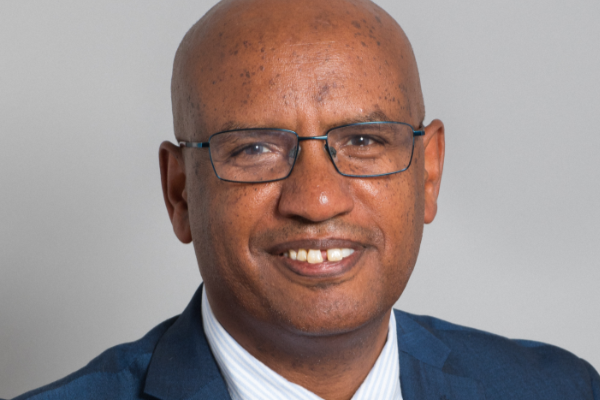
Former Corporate Director and Monitoring Officer of Brighton and Hove City Council Abraham Ghebre-Ghiorghis speaks to Lottie Winson about his 37-year career at the authority, his role as the “conscience of the organisation”, and his journey into law as an asylum seeker from Eritrea.
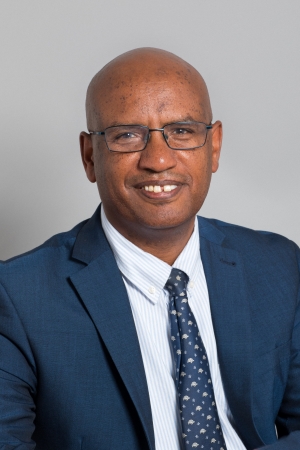
The war, which began in September 1961, was an armed conflict aimed at achieving independence for Eritrea from Ethiopian rule.
When fighting broke out between the two liberation movements in 1981, one of which Ghebre-Ghiorghis had joined as a teenager, he fled to Sudan with nothing but the clothes he was in.
“It showed me the best of human beings, as well as the worst of human beings."
Recounting his experiences within the movement and in Sudan, Ghebre-Ghiorghis describes the challenges of sleeping in the street, and constantly moving from danger. He says that although the physical discomfort was severe, the experience gave him resilience, independence, and opened his eyes to the kindness of others.
He recounts arriving in Sudan with nothing, and bumping into a girl who he knew through the movement. When she saw him in need, she collected three months’ worth of her salaries and gave them to him.
“In financial terms it was not much. But she gave me everything she had.”
In 1982, Ghebre-Ghiorghis came to England as a political refugee - joining his brother who was already living here.
He says: “I am extremely proud of Britain, and very grateful. There are 180 something countries in the world, but one that gave me asylum. […] I like to hope I’ve repaid my debt to some extent.”
After arriving in Britain, Ghebre-Ghiorghis describes his journey into law as somewhat accidental. He says: “I was always interested in justice and fairness, but because I came from a very traumatised country, people there associated the law and judiciary with oppression so none of my age group wanted anything to do with the law.”
While learning English as a second language, his tutor asked what careers he wanted to explore. Unsure of what to say, Ghebre-Ghiorghis said that he wanted to be a lawyer. “I didn’t mean it seriously”, he laughs.
His tutor gathered prospectuses, and they completed the application forms together. He was offered a place to study Business Law at the City of London Polytechnic.
Having completed his course, Ghebre-Ghiorghis worked for a blind solicitor in the Greater London Authority. His key role was to read the documents to him.
On this experience, he says: “It was quite a revelation, both into the law, but also learning to respect the independence of someone with a disability. The best support you can give someone is to enable them. Therefore, I learnt only to intervene when he needed me.”
With some experience in Local Government under his belt, Ghebre-Ghiorghis responded to an Advertisement for a Trainee Solicitor position at the Borough of Brighton, which described itself as an Equal Opportunities employer. “In those days, in 1987, this was quite unique”, he says. He was offered the job, and 37 years later, the seaside city is still his home.
His first role as a qualified solicitor was to do HMO (Houses in Multiple Occupation) enforcements in the city. He says: “Tenants were being harassed or evicted unlawfully or living in unsafe accommodation, so we basically were able to bring the standards of living up.”
Recounting his first day in court, Ghebre-Ghiorghis describes an experience which might resonate with other black lawyers. He says: “I was doing a prosecution for the council. I went over to the usher, who asked for my name. I replied and he said: “no, sorry you’re not here”. I repeated that I was representing Brighton and Hove City Council – but of course what he was doing was checking the list of defendants.”
Announcing his retirement in September after 37 years of service, Brighton and Hove recognised Ghebre-Ghiorghis for his instrumental role in championing race equality within the council, noting that his efforts in mentoring and guiding colleagues, particularly those from diverse backgrounds, had fostered a culture of “openness and inclusivity”.
Despite the challenges faced by himself and others, Ghebre-Ghiorghis is optimistic for the future. He says: “The direction of travel is more and more towards a fairer society, a more progressive society.” And, his most important piece of advice: “look for allies”.
"The conscience of the organisation"
In the last 14 years of his career, Ghebre-Ghiorghis took on the role of Monitoring Officer for the city council.
The first step, he says, was to develop mutual trust, confidence and credibility.
“When members see you as a professional, independent, objective, impartial person, they respect that. That does not come from simply knowing the technical rules, but how you interact.”
He adds: “From early on, I created a good team around me. If you want to be a good leader – the best thing you can do is get good people around you.”
He observes that the Monitoring Officer position, as the last line of defence, can be isolating. “You need to have a network of other Monitoring Officers you can reach out to – it’s a useful source of support.”
Discussing how he would like to see the role developing in the future, Ghebre-Ghiorghis begins by highlighting its importance.
“A Monitoring Officer is the thing that is the difference between propriety and corruption. As a monitoring officer, you are the conscience of the organisation.”
There are differing schools of thought on whether a Monitoring Officer should be a qualified lawyer or not, with Ghebre-Ghiorghis firmly believing the former. He says: “Local Government is governed by whole lots of complicated legal rules and procedures, so being a lawyer gives a clear advantage. […] If I had it my way, I’d probably make it a requirement.”
During his 37-year tenure within Local Government, there have been many changes within the sector. Ghebre-Ghiorghis observes a much faster pace, and less resources.
“When I first started in Local Government, we had a lot more resources and people who were able to do things. […] With technology now allowing for instant communication – we also have less time to reflect and think.”
He considers that over the last few decades, there has been a rise in criticism for public authorities. “I think there is some unfair demonisation of public servants. I don’t think they get as much credit as they deserve”.
He attributes this partially to social media – with algorithms reinforcing people’s views, leading to a more polarised society. He says: “In the 1980’s and 90’s, most people used to consume the same information – we had BBC 1, BBC 2, ITV and Channel 4. Even the newspapers were broadly similar. But now, everyone has their own favourite [news] sources, and people have become less receptive to certain ideas and views – they are in their own little bubbles.”
Describing more positive changes in Local Government, Ghebre-Ghiorghis praises a workforce that has become more diverse, more efficient, and more responsive to the public.
He concludes: “I would always recommend a career in Local Government - it’s fantastic and there are some fantastic people in the profession. […] Local authorities are a force for good and that’s something to be proud of.”
Lottie Winson is a journalist at Local Government Lawyer.
Head of Legal Services / Deputy Monitoring Officer
Senior Solicitor - Property
Legal Officer
Legal Director - Government and Public Sector
Locum roles
 Court of Protection Property and Financial Affairs Webinar Series: Contested Statutory Will Application - 39 Essex Chambers
Court of Protection Property and Financial Affairs Webinar Series: Contested Statutory Will Application - 39 Essex Chambers
02-03-2026
Online (live)
 Housing and Homelessness Conference - Birmingham 2026 - 4-5 Gray's Inn Square
Housing and Homelessness Conference - Birmingham 2026 - 4-5 Gray's Inn Square
03-03-2026 9:30 am
East Midlands
 Law Enforcement Data Processing and Part 3 of the DPA 2018 - Act Now
Law Enforcement Data Processing and Part 3 of the DPA 2018 - Act Now
05-03-2026 10:00 am
Online (live)
 Cross-Border Placements of Children - Justin Gray, Trinity Chambers
Cross-Border Placements of Children - Justin Gray, Trinity Chambers
05-03-2026 3:00 pm
Online (live)
 The Case for Ecocide Law: In Conversation with Gerard Forlin KC and Jojo Mehta - Cornerstone Barristers
The Case for Ecocide Law: In Conversation with Gerard Forlin KC and Jojo Mehta - Cornerstone Barristers
05-03-2026 5:00 pm
London
 Grappling with S73 - variations of conditions applications or appeals - Ivy Legal
Grappling with S73 - variations of conditions applications or appeals - Ivy Legal
09-03-2026
Online (live)
 HMPL Building Blocks: Tenancy Management – Assignment, Mutual Exchange and Succession - Devonshires
HMPL Building Blocks: Tenancy Management – Assignment, Mutual Exchange and Succession - Devonshires
12-03-2026
Online (live)
 AI and Information Governance: Bridging Innovation and Compliance - Act Now
AI and Information Governance: Bridging Innovation and Compliance - Act Now
12-03-2026 10:00 am
Online (live)
 Damages and other remedies in claims against HE institutions - 3PB
Damages and other remedies in claims against HE institutions - 3PB
12-03-2026 11:00 am
Online (live)
 Housing Act 2004 & the Private Rented Sector – where are we now? - Cornerstone Barristers
Housing Act 2004 & the Private Rented Sector – where are we now? - Cornerstone Barristers
16-03-2026 11:00 am
Online (live)











































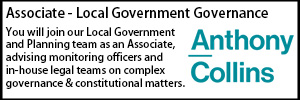
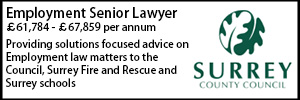











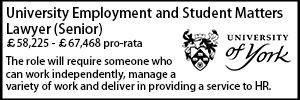









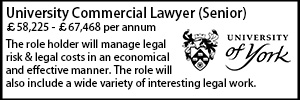
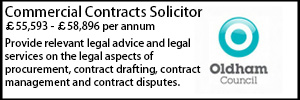




















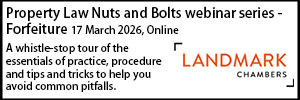





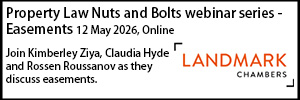








































 The SEND White Paper: the legal perspective - Landmark Chambers
The SEND White Paper: the legal perspective - Landmark Chambers  The General Data Protection Regulation - Act Now
The General Data Protection Regulation - Act Now  Data protection Conference - Hugh James
Data protection Conference - Hugh James  Contract modifications under the Procurement Act 2023 - DWF
Contract modifications under the Procurement Act 2023 - DWF  Certified Data Protection Officer Training (CDPO) - The Training Centre
Certified Data Protection Officer Training (CDPO) - The Training Centre 